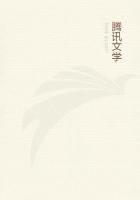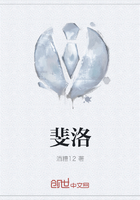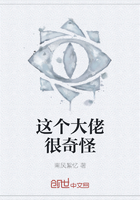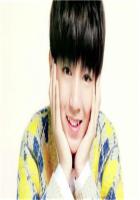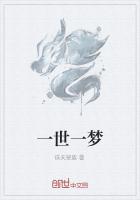"It would be all right to have a look at the grandchildren.""What grandchildren?" asked the old woman, and she looked angrily at him; "perhaps there are none.""Well, but perhaps there are. Who knows?""And thereby you can judge," Yegor hurried on, "what is the enemy without and what is the enemy within. The foremost of our enemies within is Bacchus." The pen squeaked, executing upon the paper flourishes like fish-hooks. Yegor hastened and read over every line several times. He sat on a stool sprawling his broad feet under the table, well-fed, bursting with health, with a coarse animal face and a red bull neck. He was vulgarity itself: coarse, conceited, invincible, proud of having been born and bred in a pot-house; and Vasilisa quite understood the vulgarity, but could not express it in words, and could only look angrily and suspiciously at Yegor. Her head was beginning to ache, and her thoughts were in confusion from the sound of his voice and his unintelligible words, from the heat and the stuffiness, and she said nothing and thought nothing, but simply waited for him to finish scribbling. But the old man looked with full confidence. He believed in his old woman who had brought him there, and in Yegor; and when he had mentioned the hydropathic establishment it could be seen that he believed in the establishment and the healing efficacy of water.
Having finished the letter, Yegor got up and read the whole of it through from the beginning. The old man did not understand, but he nodded his head trustfully.
"That's all right; it is smooth . . ." he said. "God give you health. That's all right. . . ."They laid on the table three five-kopeck pieces and went out of the tavern; the old man looked immovably straight before him as though he were blind, and perfect trustfulness was written on his face; but as Vasilisa came out of the tavern she waved angrily at the dog, and said angrily:
"Ugh, the plague."
The old woman did not sleep all night; she was disturbed by thoughts, and at daybreak she got up, said her prayers, and went to the station to send off the letter.
It was between eight and nine miles to the station.
II
Dr. B. O. Mozelweiser's hydropathic establishment worked on New Year's Day exactly as on ordinary days; the only difference was that the porter, Andrey Hrisanfitch, had on a uniform with new braiding, his boots had an extra polish, and he greeted every visitor with "A Happy New Year to you!"It was the morning; Andrey Hrisanfitch was standing at the door, reading the newspaper. Just at ten o'clock there arrived a general, one of the habitual visitors, and directly after him the postman; Andrey Hrisanfitch helped the general off with his great-coat, and said:
"A Happy New Year to your Excellency!" "Thank you, my good fellow; the same to you."And at the top of the stairs the general asked, nodding towards the door (he asked the same question every day and always forgot the answer):
"And what is there in that room?" "The massage room, your Excellency."When the general's steps had died away Andrey Hrisanfitch looked at the post that had come, and found one addressed to himself. He tore it open, read several lines, then, looking at the newspaper, he walked without haste to his own room, which was downstairs close by at the end of the passage. His wife Yefimya was sitting on the bed, feeding her baby; another child, the eldest, was standing by, laying its curly head on her knee; a third was asleep on the bed.
Going into the room, Andrey gave his wife the letter and said: "From the country, I suppose."Then he walked out again without taking his eyes from the paper. He could hear Yefimya with a shaking voice reading the first lines. She read them and could read no more; these lines were enough for her. She burst into tears, and hugging her eldest child, kissing him, she began saying -- and it was hard to say whether she were laughing or crying:
"It's from granny, from grandfather," she said. "From the country. . . . The Heavenly Mother, Saints and Martyrs! The snow lies heaped up under the roofs now . . . the trees are as white as white. The boys slide on little sledges . . . and dear old bald grandfather is on the stove . . . and there is a little yellow dog. . . . My own darlings!"Andrey Hrisanfitch, hearing this, recalled that his wife had on three or four occasions given him letters and asked him to send them to the country, but some important business had always prevented him; he had not sent them, and the letters somehow got lost.
"And little hares run about in the fields," Yefimya went on chanting, kissing her boy and shedding tears. "Grandfather is kind and gentle; granny is good, too -- kind-hearted. They are warm-hearted in the country, they are God-fearing . . . and there is a little church in the village; the peasants sing in the choir. Queen of Heaven, Holy Mother and Defender, take us away from here!"Andrey Hrisanfitch returned to his room to smoke a little till there was another ring at the door, and Yefimya ceased speaking, subsided, and wiped her eyes, though her lips were still quivering. She was very much frightened of him -- oh, how frightened of him! She trembled and was reduced to terror by the sound of his steps, by the look in his eyes, and dared not utter a word in his presence.
Andrey Hrisanfitch lighted a cigarette, but at that very moment there was a ring from upstairs. He put out his cigarette, and, assuming a very grave face, hastened to his front door.
The general was coming downstairs, fresh and rosy from his bath. "And what is there in that room?" he asked, pointing to a door.
Andrey Hrisanfitch put his hands down swiftly to the seams of histrousers, and pronounced loudly: "Charcot douche, your Excellency!"

